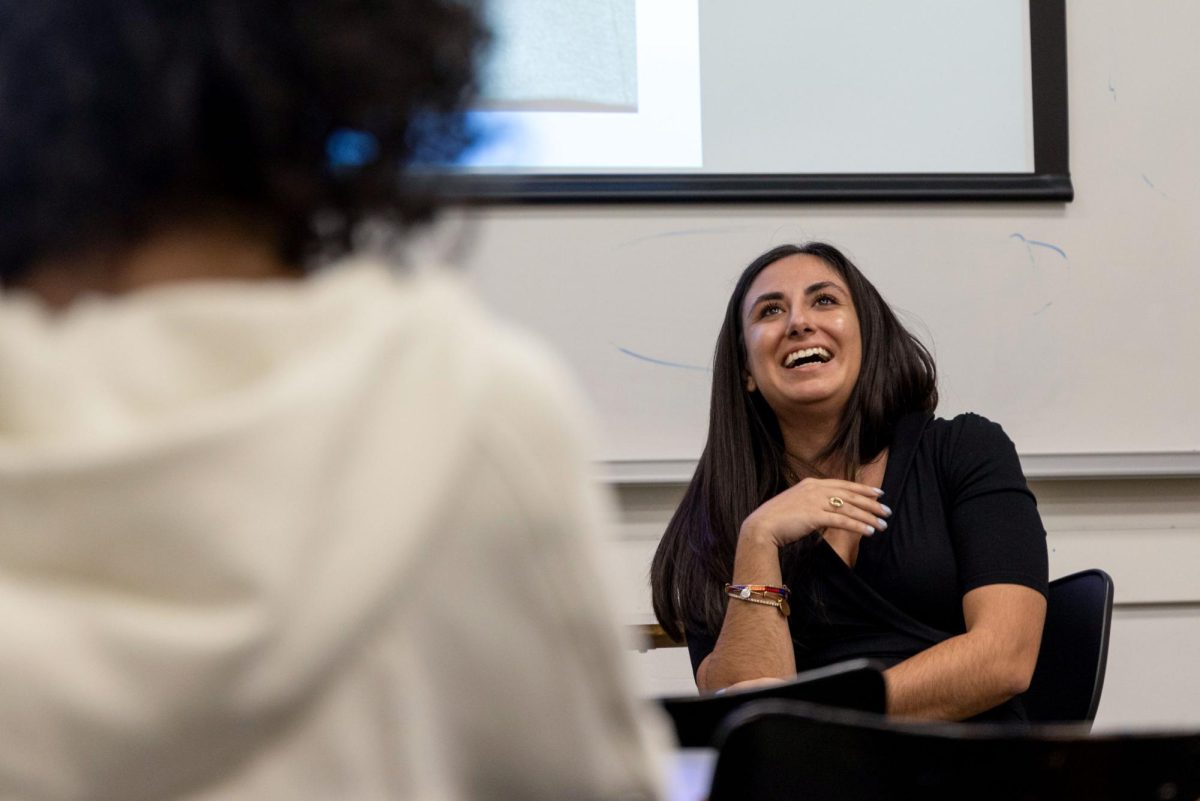A former Michigan state representative said her experiences studying at GW helped shape her identity as an Armenian woman and catalyzed her career in politics at an event in Phillips Hall on Monday.
Former state Rep. Mari Manoogian (D-MI), a GW alumni who used to represent Michigan’s 40th district, said her involvement in the GW Armenian Student Association as a student prepared her for her political career by working with different individuals and engaging in advocacy. The event was hosted by the GWASA and moderated by senior Aline Keledjian, the vice president of the association.
Manoogian, who graduated from GW with a Bachelor of Arts in international affairs in 2014 and a Masters of Arts in global communication and international organizations in 2017, said she helped found the GWASA while studying at GW. She said interacting with individuals with different perspectives in campus advocacy organizations at GW helped form her relationship with her own Armenian background.
“You are surrounded by people from all different backgrounds and different walks of life,” Manoogian said. “I think that really shaped how I engaged with my identity.”
Manoogian served two terms in the Michigan House of Representatives from 2019 to 2023. She said the low number of female representatives in state legislatures across the country inspired her to run for office.
“I went to this event where there was a presentation that was given by a few different organizations about state legislatures,” Manoogian said. “In particular, they talked about how there was a real lack of female representation across the board regardless of political affiliation prior to the 2016 election cycle.”
While serving in the legislature, Manoogian enacted a resolution to name April 24 as the Day of Remembrance for the Armenian Genocide in the state of Michigan. The Armenian Genocide occurred from 1915 to 1917 when the government of the Ottoman Empire orchestrated a systematic ethnic cleansing of Christian Armenians, resulting in the death of at least 664,000 Armenians.
She added that the Michigan legislature has passed multiple laws concerning Nagorno-Karabakh, also known as Atrsakh — an ethnically Armenian territory that Armenia and Azerbaijan have disputed since the two countries gained independence from the Soviet Union in the 1990s. The Michigan State House of Representatives approved a resolution in 2017 to urge the U.S. to recognize Nagorno-Karabakh as an independent territory and promote security in the Caucasus region.
An Azerbaijani military offensive against the region this month has increased fears among Armenians and the international community of a potential ethnic cleansing by the Azerbaijani government, causing a surge of Armenian refugees from the region to flee to Armenia, according to the BBC.
“Michigan state law is actually super progressive on Artsakh,” Manoogian said. “We have mandated genocide education legislation and we have legislation in the State Senate that supports Artsakh’s right to self determination.”
Manoogian said it is difficult for Armenian-Americans to watch and listen to the events impacting Armenians in Nagorno-Karabakh but that people must advocate for those living in the region. Manoogian said she is working with several international aid organizations to provide relief for affected families trying to contact their families in Armenia and that one of the best ways for people to offer their support is through the work of those organizations.
“We are in the process of trying to set up a clearinghouse for information where you can donate your time and talent,” Manoogian said. “Being able to donate to people who are on the ground so they can get resources will be helpful.”





